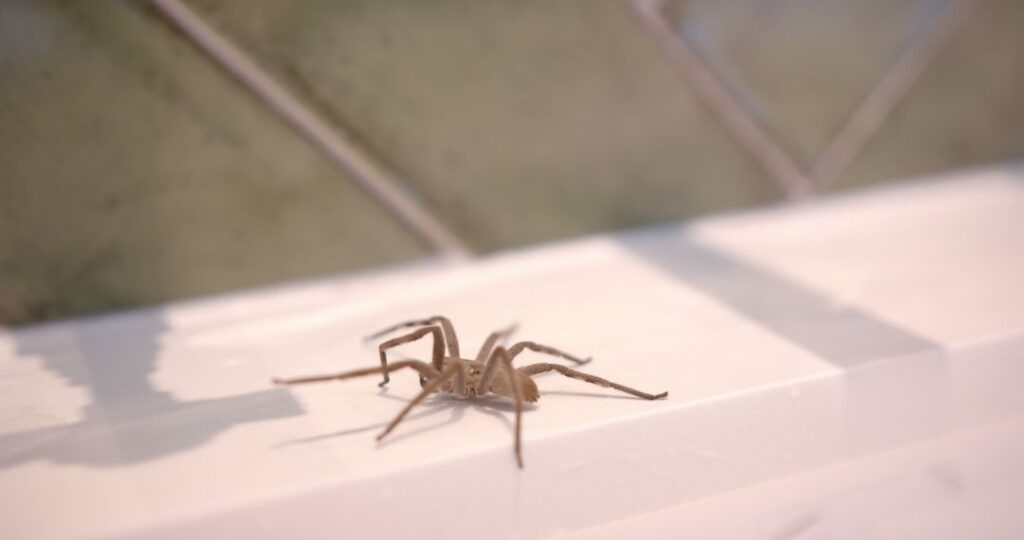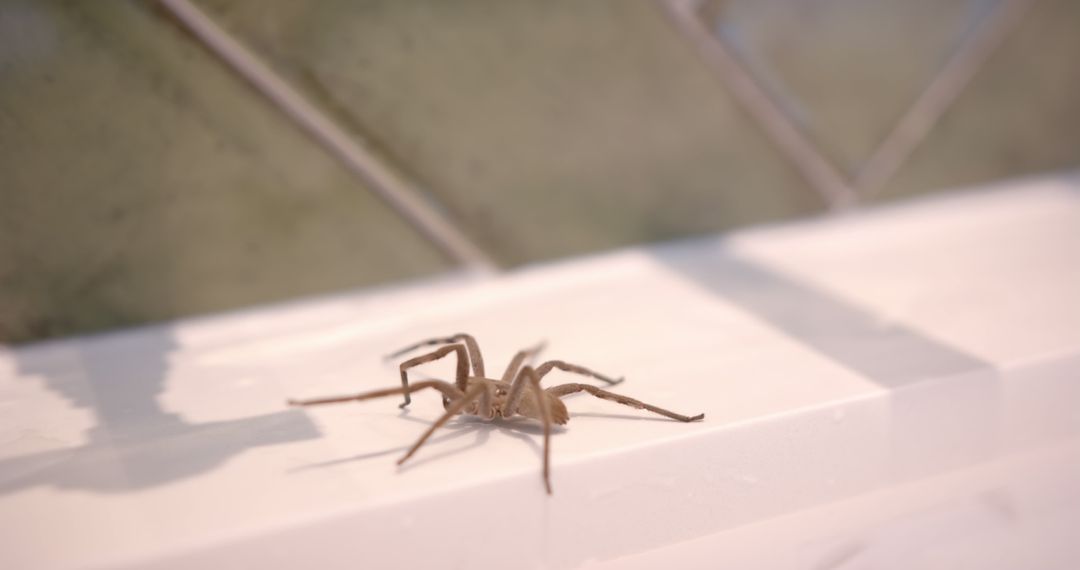
Have you ever spotted a large, fast-moving, and sometimes startlingly hairy spider darting across your basement or kitchen floor in Topeka or Lawrence? Chances are, you’ve met the Wolf Spider, one of Kansas’s most common (and misunderstood) eight-legged residents.
While they can certainly cause a moment of panic, these spiders are actually unsung heroes in the pest world. Today, we’re here to clear up the common fears and explain why you might want to appreciate these hunters (from a safe distance, of course!).
What is That Big Spider in My House?
Unlike many spiders you find indoors, wolf spiders (family Lycosidae) are named for their wolf-like hunting style. They don’t build intricate webs to catch prey; instead, they are ground hunters that actively stalk and pounce on their food.
Here’s how to identify them:
- Size: They can be quite large, with some species having a leg span of up to 2 inches. This size is usually what startles homeowners the most.
- Appearance: They are typically brownish-gray with dark stripes or markings, and they are notably hairy or robust.
- Behavior: They move quickly. If you see a large spider running across the floor rather than clinging to a corner web, it’s likely a wolf spider. They often enter homes in the fall looking for warmer places to shelter or while chasing prey.
Are Wolf Spiders Poisonous (or Venomous)?
This is the most common question we get: Are wolf spiders dangerous?
The quick answer is: No, they are generally not considered dangerous to humans.
- Venom, Not Poison: Like almost all spiders, wolf spiders possess venom, meaning they are technically venomous, not poisonous.
- Low Risk: While they can bite if they feel threatened, trapped, or aggressively handled, their venom is not medically significant to humans. A bite is often compared to a minor bee sting: it may cause some localized pain, redness, or swelling, but it rarely requires professional medical attention.
- They Prefer Escape: Wolf spiders are usually more interested in escaping your presence than engaging in a confrontation. Their first instinct is to flee.
The Unsung Heroes of Pest Control
Here’s the biggest secret about the wolf spider: They are highly beneficial to your home’s ecosystem.
Think of them as the natural pest control of your basement and garage. Their diet consists almost exclusively of other common household pests, including:
- Cockroaches
- Crickets
- Flies
- Silverfish
- Other common household spiders
By feeding on these nuisance insects, wolf spiders help keep your indoor pest populations in check. They are a natural, non-chemical line of defense against the true pests we want out of our homes.
When a Beneficial Spider Needs to Go
Even if a wolf spider is beneficial, we understand that finding a fast, hairy, two-inch-long predator indoors is unsettling. If you are seeing wolf spiders frequently, it usually indicates one thing: they are finding plenty to eat.
With Green Pest Solutions, we don’t just eliminate spiders: we eliminate the root causes and food sources that draw them (and all other pests) inside in the first place.
Our preventative treatments create a barrier around your home, ensuring that all pests, the harmful ones and the beneficial ones, stay outside where they belong.
Stop stressing over unwanted houseguests this season! Call us today to secure your home and take back your peace of mind.
Topeka/Lawrence: (785) 384-5920
Kansas City: (913) 354-6570
